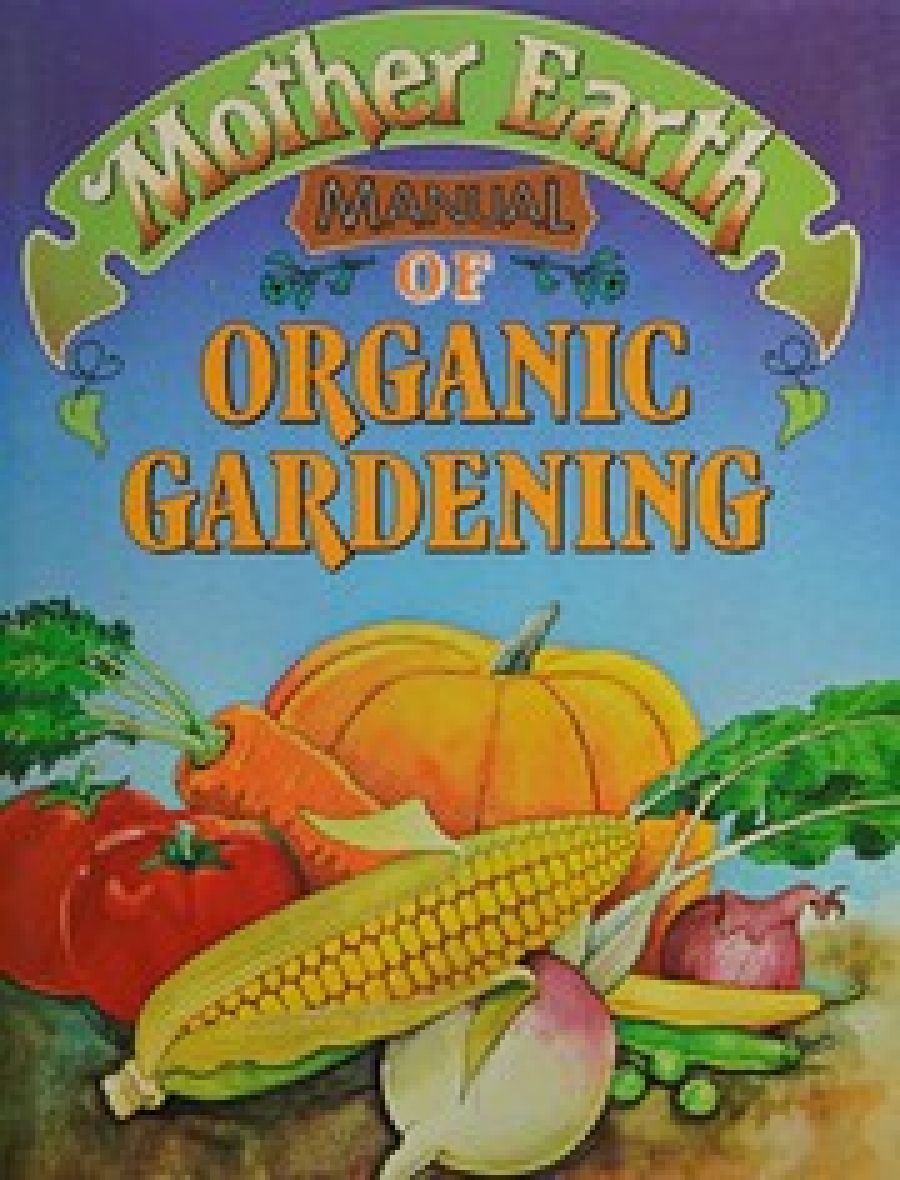
- Free Article: No
- Contents Category: Nature Writing
- Review Article: Yes
- Article Title: Organic Gardening for a Healthy Living
- Online Only: No
- Custom Highlight Text:
Books on organic gardening are now, due to demand, appearing very frequently on booksellers’ shelves. One is therefore compelled to ask two questions of each new publication – Does it really have anything new to say? – or, does it cover the whole field very well? I think this book falls in the latter category, with succinct statements and clear layout; it is well-indexed and sufficiently illustrated, so that it is very useful to any gardener as a quick reference book. Whilst very little is new, the text is clear, the tables useful, and the weaknesses difficult indeed to find, so that the negative criticisms below are a minor feature of the whole work.
- Book 1 Title: Mother Earth Manual of Organic Gardening
- Book 1 Biblio: A.H. & A.W. Reed, 144pp., $6.95 pb ISBN 0 589 0091 5
- Book 1 Cover Small (400 x 600):

- Book 1 Cover (800 x 1200):

What would otherwise be a practical manual for the home organic gardener is somewhat marred by the inclusion of some sweeping and unsupported statements which may be misleading. Does lime in the soil in fact reduce the incidence of cancer? Does it reduce the toxicity of heavy metals? and which bacteria and organisms ‘neutralise’ heavy metals? Does gardening in the ‘distorted light’ of greenhouses really lead to a general decline in health, and if so why recommend glass for growing?
My grandmother wouldn’t agree that washing-up or bath water (used sparingly) wipes out beneficial organisms in the soil. All this smacks of the mystical and purerthan-thou approach now found in organic gardening (which is, after all, hardly a new discovery), and detracts from the credibility of the many other excellent points made in the book. At the risk of being too particular, I also question the very detailed and ‘gadgety’ approach, for example the heavy accent on the drainage for home gardens. Raised beds are simple and just as effective. The American penchant for small machines (shredders) and the British mania for compost will be satisfied, but so much material which is now composted is better simply spread directly on the garden as sheet mulch (a la Ruth Stout), and is much more effective in weed control used in this way, as well as saving the inessential labour of growing worms as a separate endeavour! Nevertheless, the section on mulching is useful and least trouble for beginners to apply. There are some very useful hints on organic pest control and a few ‘marginal’ ones on companion planting – only a few of which have worked in my garden. I personally find that intercropping and mixed beds are effective in reducing pests, while obviating the need to remember which crop to rotate.
It is in my own area, that of design, that I find little to praise, for example in the house garden layout. The elements are all there, but the placement is ill-considered. Neither Fukuoka (author of The One-Straw Revolution) nor myself would agree with the section on tillage and it does contradict sheet mulch experience. Digging is not necessary and can be damaging in many ways, as well as generating fine weed crops and creating a situation which demands constant attention.
On the credit side, what is commendable about the book is the accent on the whole garden environment: shelter, sun, soil and its treatment. Also included are very useful lists of nutrient sources and materials useful to the gardener from vacuum cleaner dust to lignite. Many of these are well annotated as to content, fertilizer value, and soil effect. The book is reasonably priced and has a plethora of useful data, so that it deserves a ‘browsing’ place on the shelf of any organic gardener. Just beware that you don’t make yourself sick with worry about pollutants – worry can be more damaging than superphosphate if applied in immoderate quantities. Normal common sense is the best tool of the gardener, and common-sense people avoid using any poison in the food they grow.


Comments powered by CComment